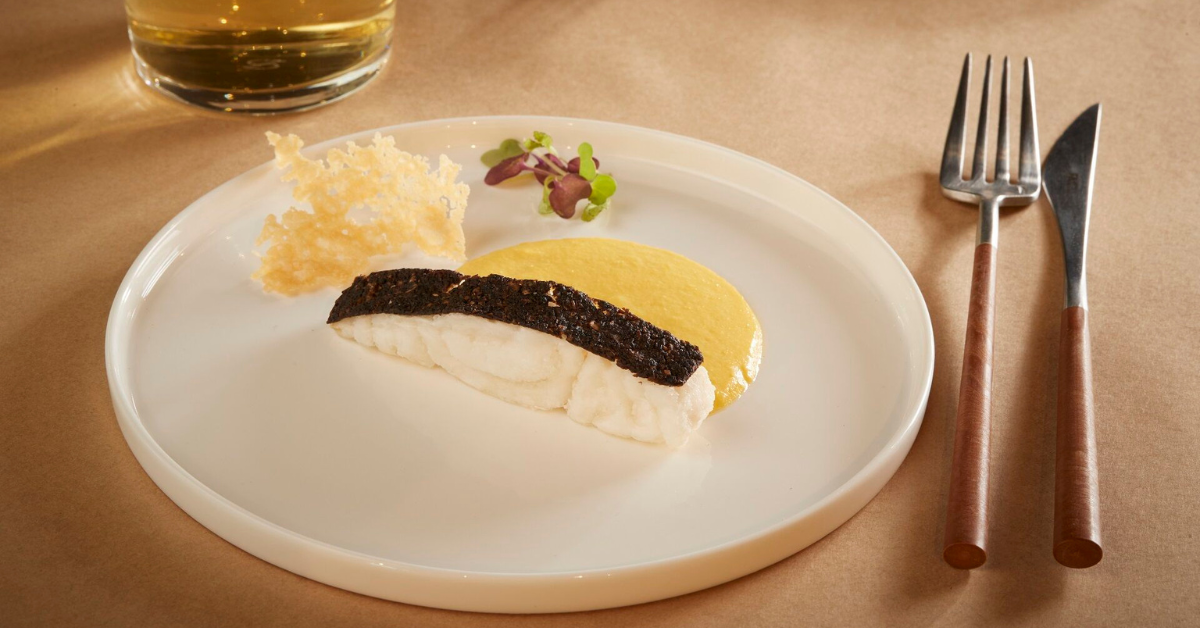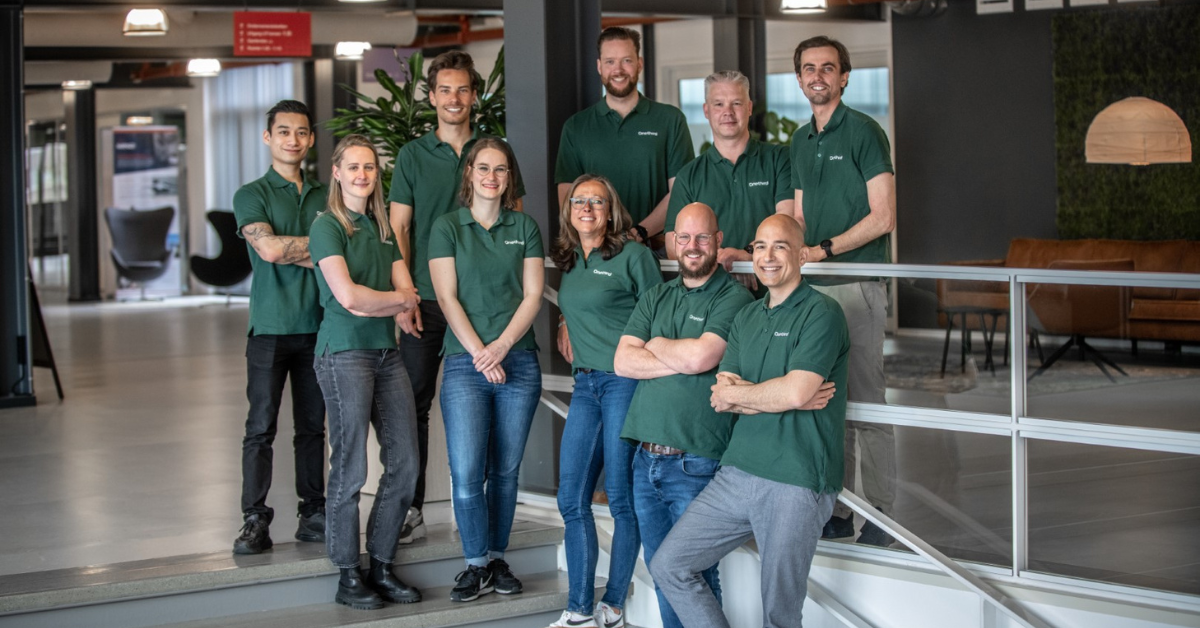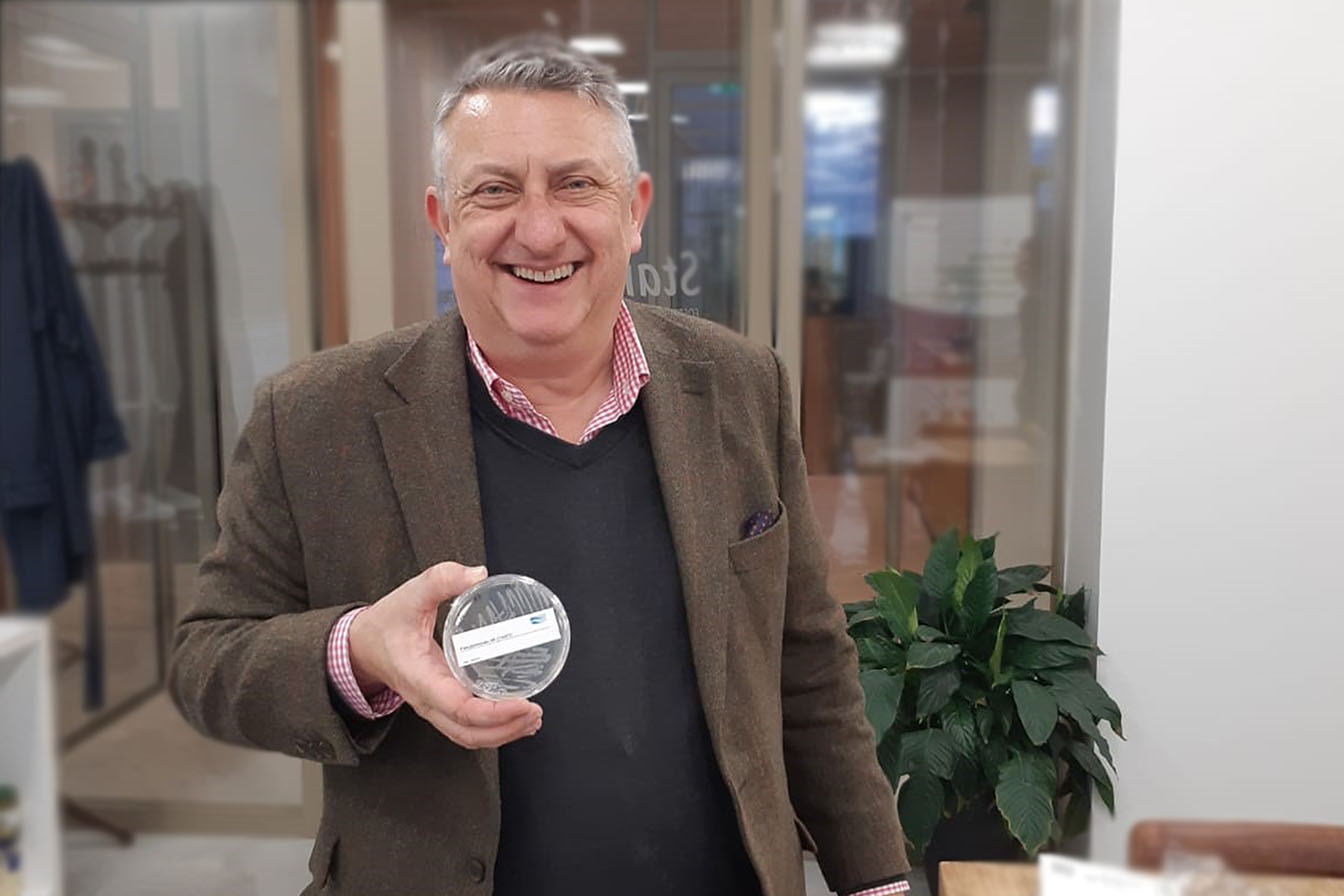Seafood is enjoyed by many people around the world – but with overfishing and issues with aquatic pests and diseases, the traditional seafood system is vulnerable. StartLife alum Umami Bioworks is transforming the future of seafood by developing an automated, modular production platform for producing delicious, nutritious, and affordable cultivated seafood that is better for our health, our oceans, and our future. Since its participation in StartLife Accelerate in fall 2022, the Singapore-headquartered startup is going strength to strength, both in the Netherlands and around the world.
Not exactly new to the startup world, Umami Bioworks founder Mihir Pershad helped build half a dozen companies, four of which were aquaculture biotechnology companies. Through his experience with aquaculture, Mihir noticed the fragility in the seafood system as it is today.
“It’s tiring having to reinvent products every year because the bacteria or viruses keep evolving. The industry only needs to get it wrong once to have a real problem.”
Seeing how unsustainable this is, Mihir wanted to use new tech to find a solution so that we can still eat the same seafood in 50 years that we enjoy today. When Umami Bioworks was founded in 2020, cultivated meat had already been on the scene for a couple of years. Umami’s view is that they needed to find a way to bring the traditional industry to into this sector to enable real global scale and impact. Finding a way to help the companies who are already making and delivering food a part of the solution for the next food evolution.
Attraction to StartLife
What drew this Singaporean startup to StartLife, an accelerator in the Netherlands?
“We’re based in Singapore but, I think, very global and ambitious since the beginning because if you’re a technology development company, you can work with anybody. I was born and raised in the US, so I have strong ties and worked in the industry in the US. Between the US and Asia, it felt like we had a decent foothold and were starting to really build strong partnerships with traditional seafood players. But I think it’s hard to talk about global success without being in Europe as well.”
Mihir had previously collaborated with companies in the Netherlands and the Dutch ecosystem felt like a natural fit for Umami Bioworks to set up its European base. However, Mihir did not know whom to talk to, and what were the ways to build a company and relationships in the Netherlands. Umami Bioworks was introduced to StartLife through the Dutch Embassy in Singapore.
“For me, the opportunity to have a focus with some people locally supporting us getting setup was a really great way for us to start building a team. Also, getting connected to different resources and facilities. So that was our thinking and why we decided to work with StartLife.”
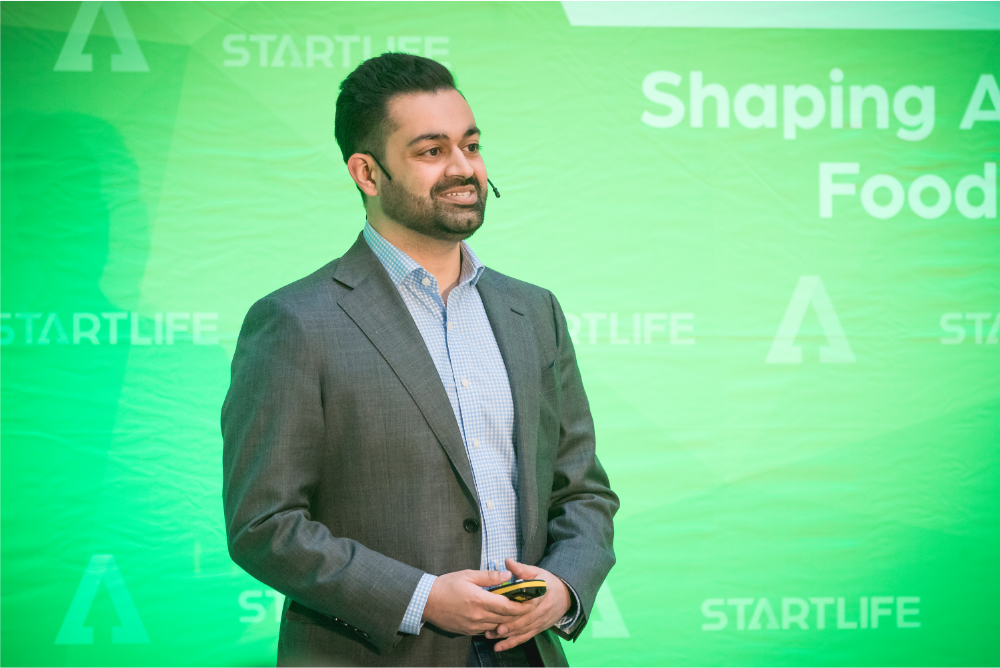
StartLife Support
StartLife has supported Umami Bioworks by helping them make the right connections and offering access to facilities.
“StartLife helped us make the right connections to the many different groups that we needed to be in touch with as we were thinking through how to build our team in the Netherlands. Having access to an office where we can just show up and do some work is helpful, too. They helped us with making some connections with professors and labs at Wageningen University, in Delft, and with some strategic corporates in the ecosystem. Additionally, they helped us a little bit to think through how to more rigorously test some of the assumptions that we have. We’re bringing what’s working in Asia and trying to make sure those approaches align with the way people do business in Europe. I think that’s been quite positive as well.”
Journey Since StartLife
Umami Bioworks did not long graduate from Accelerate, being part of the Fall 2022 cohort. Still in that brief time, they have made a lot of progress. From helping to produce the world’s first 3D-printed cultivated fish fillet to signing its first commercial customers.
“We have now signed commercial customers in Asia, which is great. We’ve been able to move from hypotheses and letters of intent to funded development contracts and from commercial intent to license documents. That’s really helped set out a clear path for how to work with companies in Europe and the US.”
This commercial traction also gives Umami Bioworks more freedom in paths to scale-up and commercialization. With this strategic corporate support, Umami can now build in line with its customers instead of relying solely on raising venture capital to grow.
Graduation does not mean the company is leaving us. In fact, it is part of a project with Wageningen University and Research and currently applying for three other projects in the Food Valley area. Mihir was here a couple of weeks ago because the company is in the planning stage of setting up a pilot facility which will most likely begin construction in late 2024.
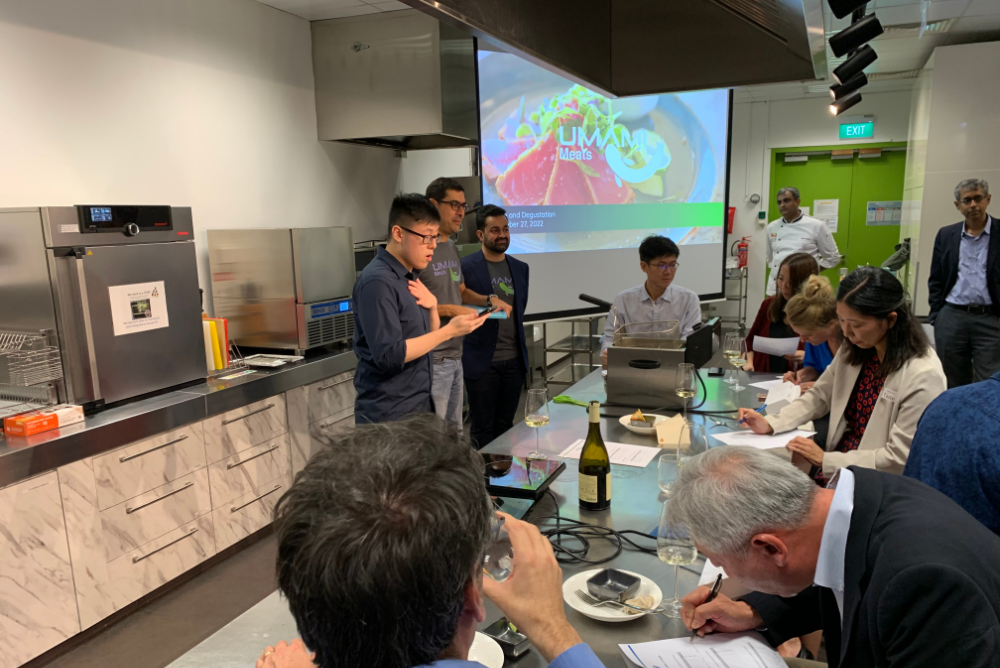
Entering the European Market
Already based in the US and Singapore, where approvals for cultivated meat already exist, we asked Mihir if he sees EU regulation on novel foods as a problem for entering the European market. He gave a balanced answer:
“It is certainly slower, but I would say European novel food regulation is clearly defined. Sometimes a bit ambiguous in terms of how it applies to cultivated meat compared to other novel foods. But, in general, the framework exists. It’s not like a country like Japan, for example, which doesn’t have a novel food framework in place yet. There, it’s much trickier because you have to wait for the law to be written. I think in Europe it’s just a more intensive review and there’s more data expected. So, it doesn’t make sense to have Europe as a first pathway, as you can get US approval and a Singapore approval and then leverage that learning into a European one.”
Mihir sees Umami Bioworks’s business model as advantageous for getting approval in the EU:
“One of the benefits of our approach is that we can work with corporate regulatory teams that many of our customers will have and if we’re helping them come to market, those teams can support a lot of groundwork to go have conversations and make sure that we’re staying on top of what can be a very involved process in Europe.”
A stroke of luck that the company has chosen the Netherlands as their base in the EU. This is because the Netherlands recently became the first country in the bloc to approve tastings of cultivated meat and seafood. Tastings are of course important if you are making food. And just might help when it comes to getting novel food approval.
“Tasting of cultivated meat in the Netherlands is going to benefit Umami Bioworkss. We’ve been working very closely with the Dutch equivalent of the Foreign Agricultural Office at the Dutch Embassy in Singapore, trying to figure out if we were to set up a pilot [in the Netherlands] and we’re still waiting on approval, could we sell products for export. We got a determination about 8 or 9 days before the tasting was approved, that this approach would be acceptable. So, if it’s an approved product in the country of import, we can produce in the Netherlands and export elsewhere. That’s a decent starting point because you can start working, start building the production foundation while waiting for regulatory approval.”
Optimism, then, from this ambitious startup.
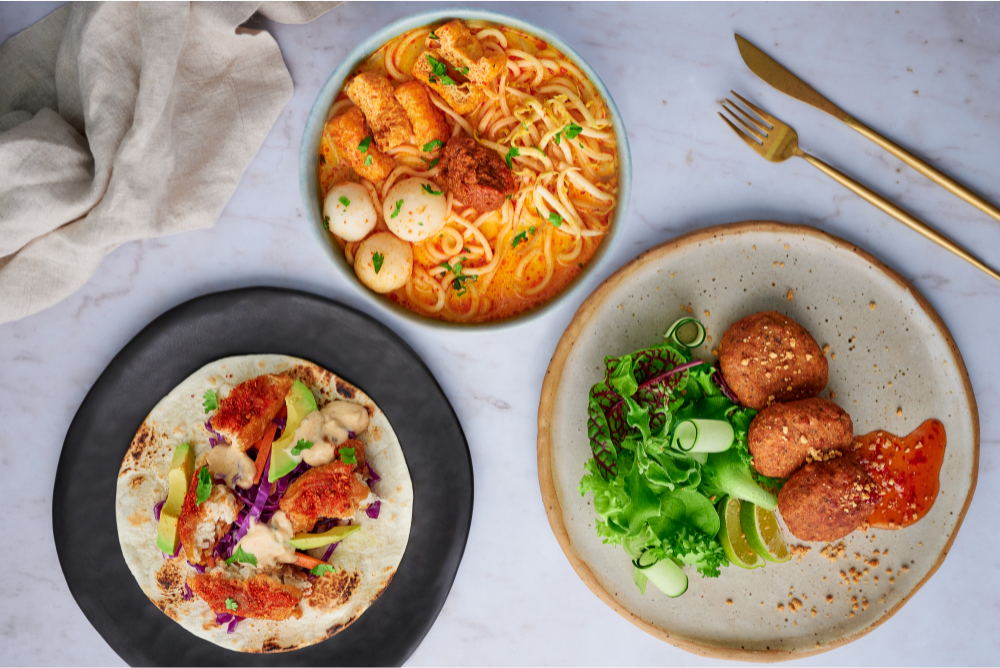
Expanding Globally and the Future
The commercial contracts have come from countries in Asia, including Japan and Malaysia. Mihir sees this promisingly as Japan is a large single market.
“We’re also looking at the potential of developing a pilot and commercial plant in Japan for the Japanese market with our Japanese strategic partners, in parallel with what we’re doing for the Western markets in the Netherlands.”
Additionally, Umami Bioworks is working on getting the first regulatory approvals, for which they’re planning to submit the first applications before the end of the year. To this end, the goal is to have the first products on the market in early 2025 if everything goes well.
“Maybe 2024 if everything is perfectly aligned. But good to give ourselves a couple of months for slippage in the regulatory process and then getting a factory commissioned and ready to produce.”
As the company expands globally, it remains a small company. “It’s a challenge thinking about how we build, maintain, and manage an international organization as small as we are. We’re still not 20 people yet. So how do we build process without stifling the fluidity of early-stage businesses. No one really wants to take a corporate structure on as a 20-person company. But some of it is very necessary, working across time zones and countries.”
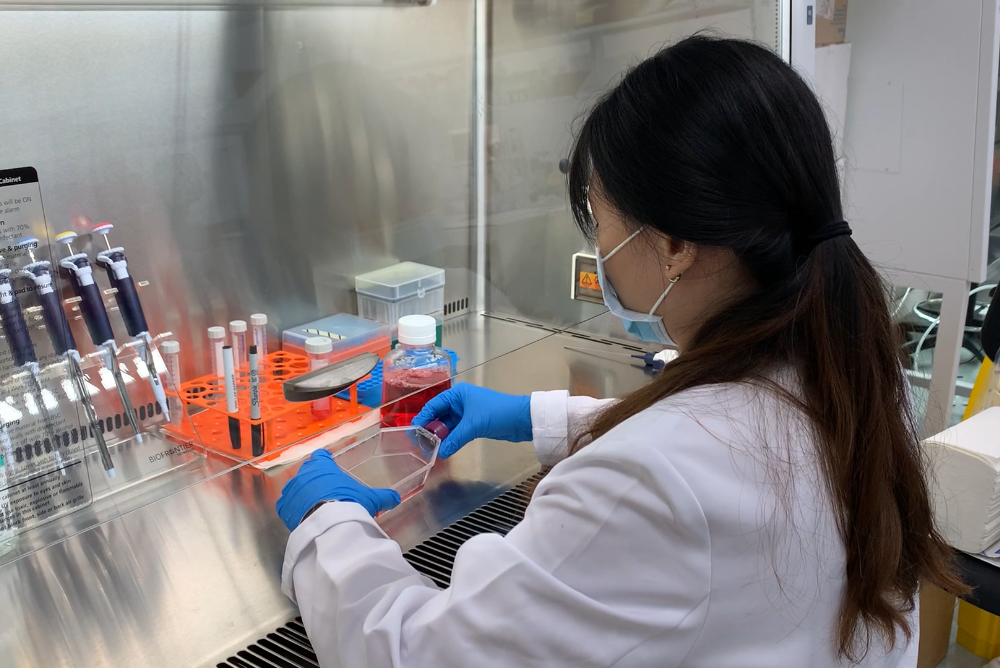
Final Words
At StartLife, we believe that the startups say it best when it comes to what we can offer you as an agrifoodtech startup. Mihir summarized his experience with StartLife with these words:
“In general, we’re glad to be part of the StartLife community. It’s something I’d like to see replicated in other places. I think the Netherlands really does well with helping people come in, get connected, get settled, and building an ecosystem. It does that very well. The government supports organizations and know what they’re trying to attract, where people might benefit or may be better off elsewhere. It’s just a very well-functioning structure, for helping to find the right people and get plugged in.”
Are you a startup who could also benefit from StartLife’s support? Check out the Accelerate program here.
